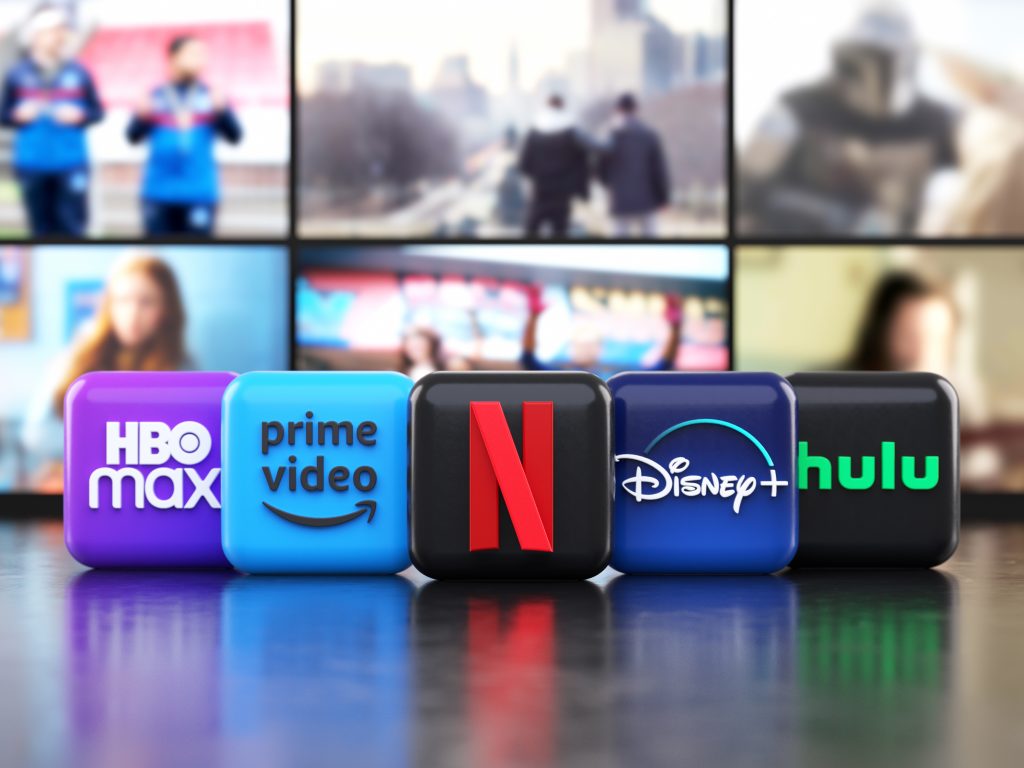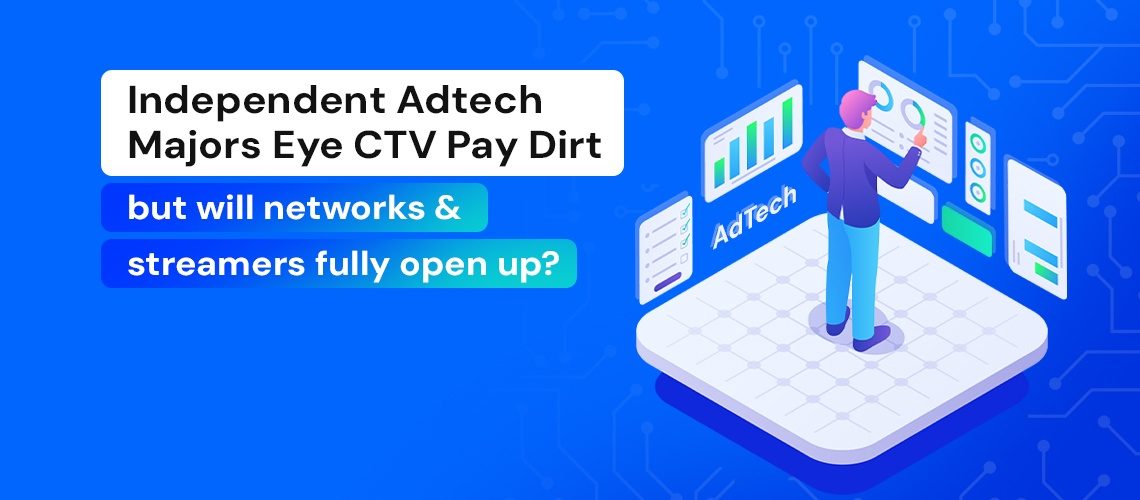The major independent adtech companies are pinning significant growth hopes on CTV and retail media, the two fastest growing markets available to them.
Follow the money – or marginally front-run it – is usually a smart strategy. But with CTV, there are question marks around appetite at the top end of town to open up TV inventory to the fully open programmatic world.
The likes of The Trade Desk, Magnite, and PubMatic in November posted relatively solid quarter three earnings results. But while share prices for Magnite (revenues up 3%) and PubMatic (revenue down 1%) are both up double digits over the last 30 days, The Trade Desk, despite posting revenue growth of 25%, is trading down double digits over the same period.
Investors seemingly took issue with The Trade Desk CFO, Laura Schenkein telling it how it is: Q4 is laced with “macroeconomic uncertainty”.
Shareholders, particularly in tech, are notoriously fickle. But The Trade Desk CEO Jeff Green sees major upside from CTV and the streaming majors now moving into the advertising space. Never downbeat, Green told investors he had “never been more bullish” despite challenging macro-economic conditions squeezing almost all media companies and the media supply chain outside of the major walled gardens.
“That is because of the slew of things in front of us … what we see as some of the biggest opportunities we’ve ever seen and probably ever will,” per Green. “CTV is moving to streaming more and more and they’re also moving to biddable both as a total and as a percentage at a faster rate than it ever has before … We’re convinced that [streamers’] incremental subscribers and the incremental revenue are largely going to come from ads,” said Green.
“Retail media … is one of the fastest-growing areas of our business and it’s providing advertisers with completely new ways of thinking about measurement and attribution.”
“In 2024, I also believe audio will follow suit. They’re going to take out the CTV playbook and they’re going to see some of the benefits that I think are really important for that category to grow. So I think there’s another secular tailwind available in 2024.”
CTV going all in?

In the immediate term, for The Trade Desk and the non-specialist retail media players, CTV is the biggest battleground. Green thinks it’s about to open up.
“Whether you’re talking about smaller players like Paramount or the big guys like Disney … All of them, in my view, need programmatic advertising to help them get the next stage of growth,” he told analysts on the Q3 earnings Q&A.
“I think companies like Disney and Netflix have proven this, where their ad-funded subscribers are worth, in most cases, about double to them [versus] those that are not receiving ads … The only way … they keep producing more revenue per user is if the ads get more effective and more relevant. I don’t think it’s super easy for them to just create lots more ads … that will be too disruptive,” said Green.
“So their way out is to make CPMs go up. The only way to do that is for them to make the ads more relevant.”
Open season?
As such, the firm appears to be banking on CTV, including the major streamers, or AVODs, going fully biddable programmatic, i.e. the way of the internet and mobile advertising.
That’s a big call – and Jeff Green is a billionaire from correctly reading the runes. But right now, it’s not quite happening. While Insider Intelligence has suggested almost 90 percent of CTV ads will be transacted programmatically in 2023, the vast bulk of these deals are via programmatic guaranteed or private marketplaces, not the open exchanges.
Around the world, the major TV networks managing the transition from broadcast to on-demand (their BVOD businesses), are highly reluctant to let go of the reins. The streamers now building ad businesses are also investing significantly in their own in-house sales teams. As a result, the top end of CTV tends to be bought in more of an old school fashion, with a small layer of automation thrown in.
But Green thinks that mind-set may be starting to shift.
“As the dollar moves over from traditional television into CTV, it’s mostly gone into three different buckets relatively evenly. The first is to work directly with the content owner and create essentially an insertion order again. The second is to work with us through programmatic guaranteed and then the third is to work through biddable, fully-decisioned programmatic,” he told the analysts’ call.
“You’re seeing the first and second converge and then the third category is … the fastest growing. So when I talk about the need for television to embrace programmatic, I’m really talking about the need for it to embrace fully decisioned programmatic, because that’s where content owners get higher CPMs,” said Green.
“Fully decisioned programmatic is the [bucket] where the advertiser gets to bring their own data to the equation. It’s the one where they say, ‘These are the users that I want.’ It’s the one where it realizes the potential of CTV advertising, because the ads are relevant.”
Consolidation ahead?

Magnite CEO Michael Barrett also sees upside as the streamers and traditional TV networks pile in to CTV.
The big publishers, he suggested, “generally prefer to sell programmatic deals through their direct sales teams … However … We believe that as programmatic CTV scales, buyers will want to purchase the majority of their CTV programmatically using advanced data targeting within biddable environments, a process that can’t be executed using a direct sales team.”
But Barrett doesn’t see the big streamers and TV networks willingly ceding control to the type of cluttered ad tech ecosystem that fifteen years ago left digital publishers wondering where their ad revenues went.
“You’re not going to see a header bidding world where they need ten SSPs to be able to run a unified auction. Even when things become biddable, for the vast majority of the publishers it’s going to be an invite-only auction run by one or one and a half SSPs,” per Barrett.
PubMatic sees the same streamlined marketplace playing out within programmatic CTV, as advertisers look to “simplify the digital advertising supply chain and drive greater efficiency”. That approach can lead to both cost and carbon efficiency, according to CEO Rajeev Goel – with advertisers with carbon reduction mandates now actively aiming to reduce the number of links in the programmatic chain.
“Buyers continue to consolidate ad spend across a smaller number of platforms,” said Goel.
Which means supply path optimisation (SPO) within CTV looks set to be an ongoing trend – particularly the sell-side TV and streaming majors are yet to be convinced to dive more fully into fully open programmatic.
Either way, Goel thinks there’s upside regardless – because the money is moving.
“We are particularly excited about the growth potential in CTV, where PMP and programmatic guaranteed transactions are most prevalent,” said Goel.
“We’ve seen significant growth in our PMP business over the past year, with nearly a third of our revenue now coming from these transaction types, up nearly 10 percentage points year-over-year. Much of this growth is coming from CTV as we continue to acquire new streaming publishers at a rapid pace as they look to secure ad dollars shifting from linear TV to CTV.”
The long-term direction seems clear: programmatic is entering a new phase with CTV as the streamers pile in to ads and legacy broadcasters grasp the shift from upfront deals to more opportunistic buys across much of their inventory.
Quite how that plays out – and which company bosses and share traders have called it right – will be fascinating to watch.


